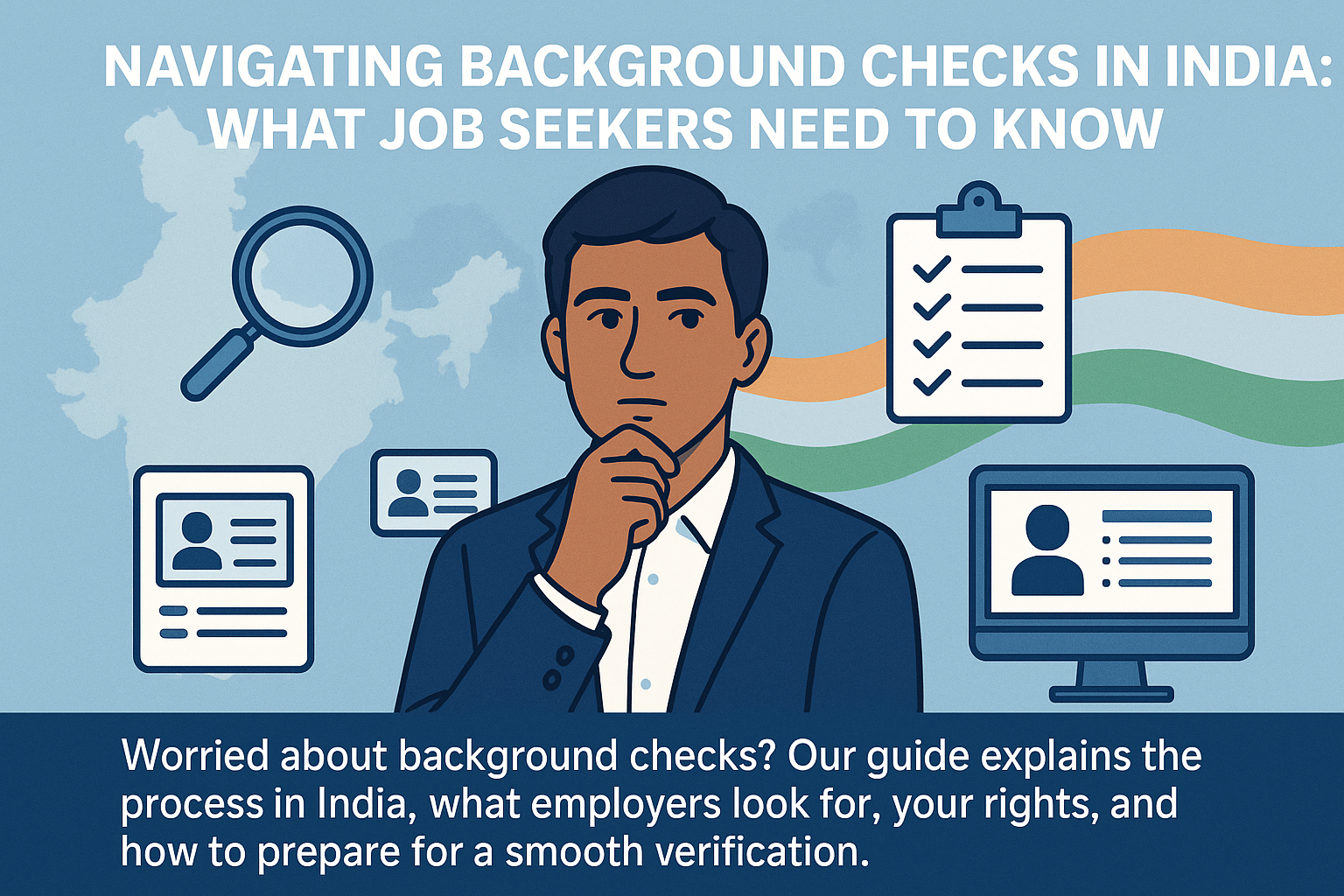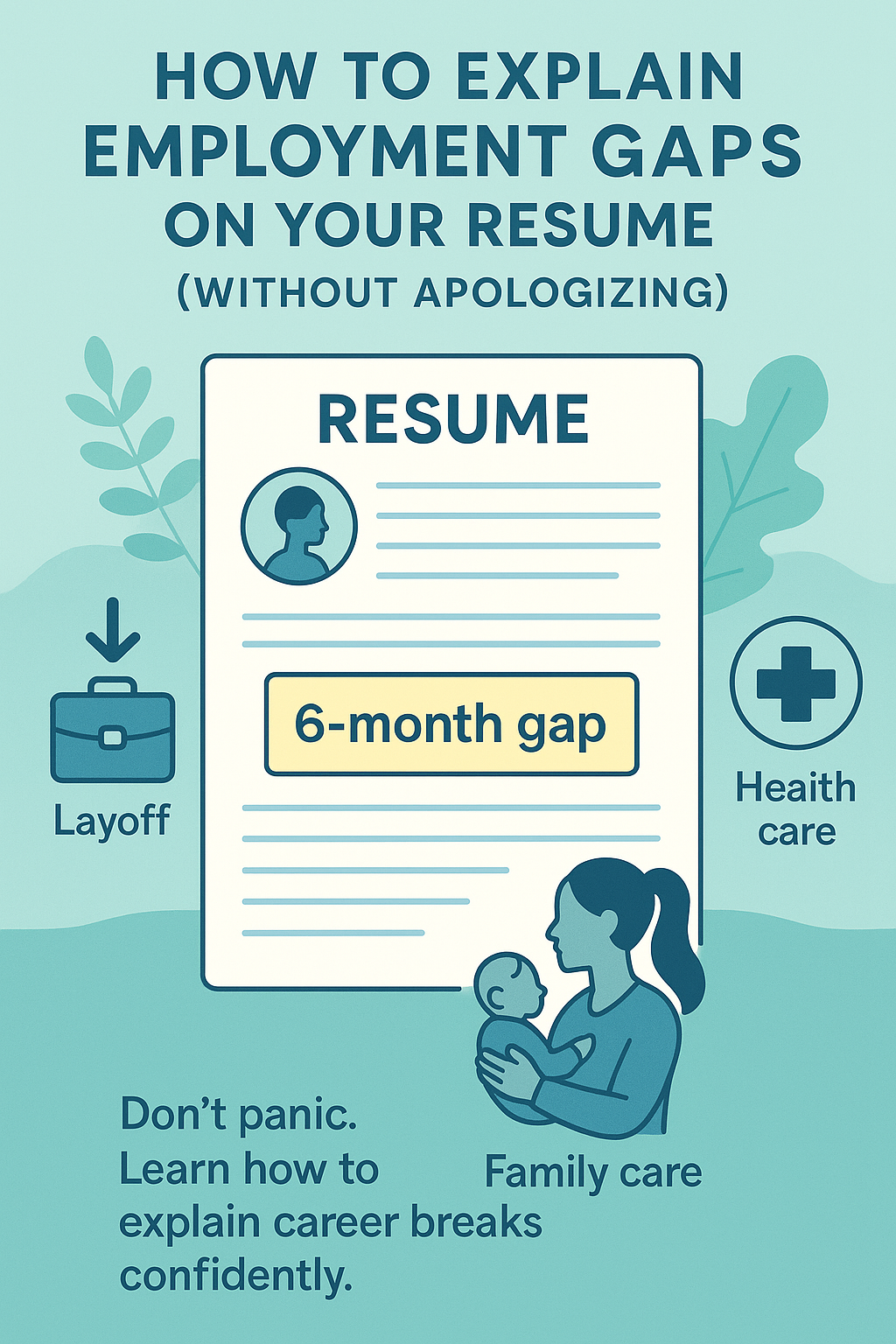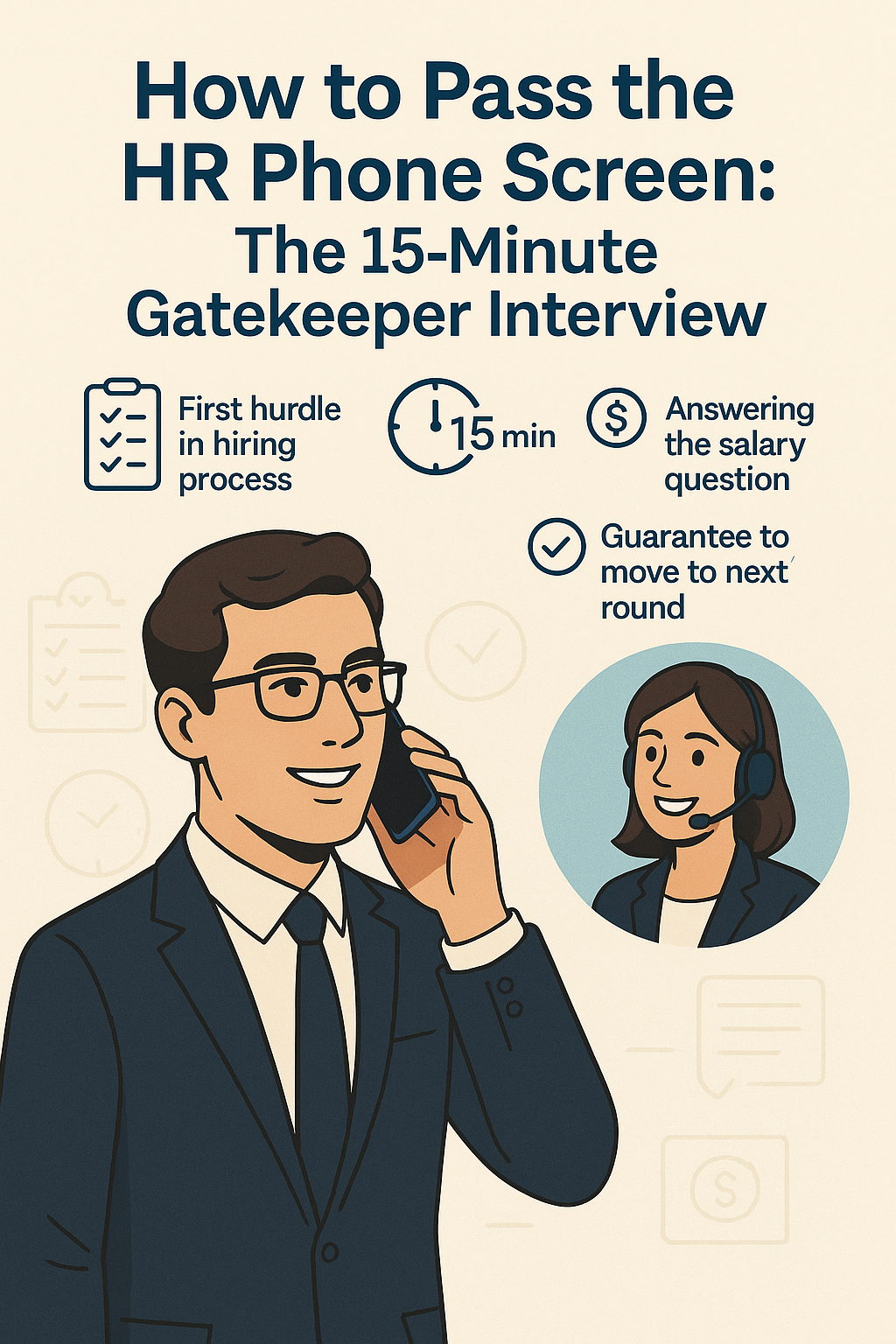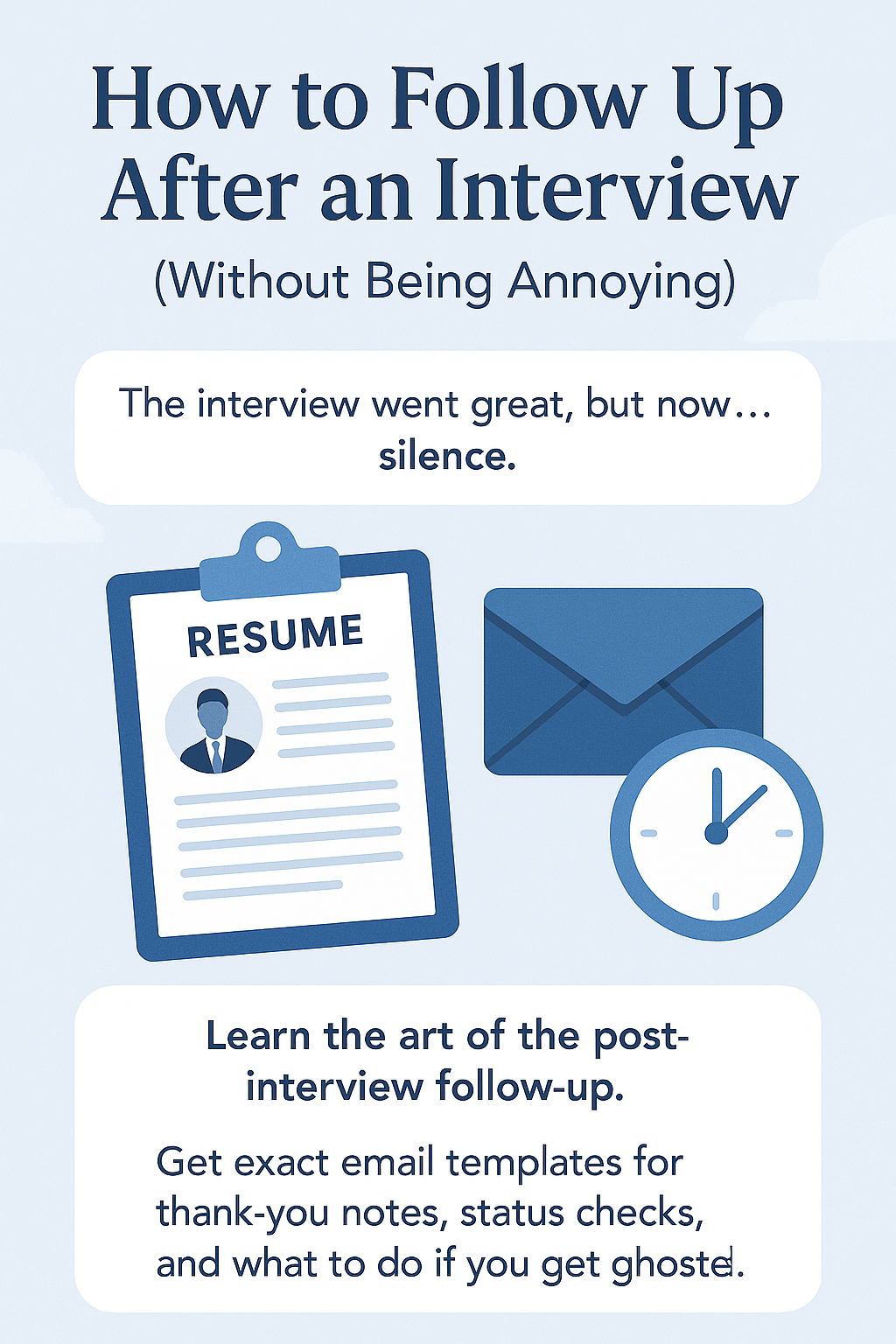
Navigating Background Checks in India: What Job Seekers Need to Know
You've navigated the entire job search gauntlet. You perfected your resume, aced multiple rounds of challenging interviews, and successfully negotiated a great compensation package. The final offer letter is in your hands, contingent on one final step: the background verification process. For many job seekers, this phase, often shrouded in a bit of mystery, can be a source of significant anxiety. What exactly are they checking? How far back do they look? What if there's a minor discrepancy I wasn't aware of? Could a simple mistake cost me the job I worked so hard to get?
In India, pre-employment background screening has become a standard and non-negotiable part of the hiring process for almost all reputable companies, especially in sectors like IT, BFSI (Banking, Financial Services, Insurance), and roles involving sensitive data or financial responsibility. Companies undertake this process not to pry into your personal life unnecessarily, but to mitigate risks. They need to verify the information you provided, ensure a safe work environment for their existing employees, and comply with various industry regulations.
Understanding how this process works, what employers typically look for, and what your rights are as a candidate can significantly reduce your anxiety and help you navigate this final stage with confidence. While honesty is always the best policy throughout your application process, knowing what to expect during the background check ensures there are no surprises and helps you prepare the necessary documentation in advance. This guide will demystify the background verification process in India and provide you with the essential information you need to ensure a smooth and successful final step towards your new job.
What is a Background Check and Why Do Companies Do It?
A background check, or background verification (BGV), is a process undertaken by employers (or a third-party agency on their behalf) to verify the accuracy of the information provided by a job candidate. The primary goals are:
- Verify Identity and Credentials: Confirming that you are who you say you are and that your educational qualifications and past employment history are accurate.
- Assess Risk and Ensure Safety: Checking for any criminal history or other red flags that might indicate a risk to the company, its employees, or its clients.
- Compliance: Meeting regulatory requirements specific to certain industries (like finance or healthcare) that mandate thorough background checks.
- Protect Company Reputation: Ensuring that new hires align with the company's values and won't pose a reputational risk.
It's crucial to understand that the scope and depth of a background check can vary significantly depending on the company, the industry, and the seniority or sensitivity of the role you are applying for.
Common Components of a Background Check in India
While the specifics can differ, most standard pre-employment background checks in India typically include verification of the following:
1. Identity Verification
This is the most basic check, confirming your identity using government-issued documents like your Aadhaar card, PAN card, or Passport. They verify your name, date of birth, and address.
2. Employment Verification
This is often the most critical part for experienced professionals. The verification agency will contact the HR departments of your previous employers (usually listed on your resume for the past 5-10 years) to confirm: * Your dates of employment (start and end dates). * Your job title or designation held. * Sometimes, the reason for leaving (though many companies only confirm dates and title). * Crucially, they do NOT usually ask about your salary details. Salary verification, if done, is typically handled by requesting payslips or bank statements directly from you, not from your previous employer.
Common Issue: Discrepancies in dates or job titles are the most frequent red flags found during employment verification. Even a small, unintentional error on your resume can cause delays or concerns.
3. Education Verification
The agency will contact the universities or institutions you listed on your resume to verify: * Your degree or diploma obtained. * Your years of attendance or graduation date. * Sometimes, your major or specialization.
Common Issue: Providing incorrect graduation dates or slightly misstating the official degree name can cause verification failures. Ensure the information on your resume exactly matches your official transcripts.
4. Address Verification
This involves verifying your current and sometimes permanent addresses, often through a physical visit by an agent or by checking submitted documents like rental agreements or utility bills.
5. Criminal Record Check
This is becoming increasingly standard. The check is usually done through police records and court databases to identify any significant criminal convictions. Minor offenses typically do not pose an issue, but serious convictions can be grounds for withdrawing an offer, especially for roles involving trust or security.
6. Reference Check (Optional but Common)
While sometimes part of the BGV, reference checks are often conducted separately by the HR team before the formal BGV process begins. This involves speaking directly to the professional references you provided (usually former managers or senior colleagues) to get qualitative feedback on your skills, performance, and work ethic. Always ensure you have asked your references for permission before listing them.
Your Rights as a Job Seeker During a Background Check
It's important to know that you have rights during this process. * Consent is Required: An employer cannot conduct a background check without your explicit, written consent. You will typically be asked to sign a consent form authorizing the check and the release of your information. * Right to Accuracy: The information collected about you must be accurate. * Right to Dispute: If the background check reveals negative information that you believe is inaccurate, you generally have the right to be informed and to dispute the findings with the verification agency.
How to Prepare for a Smooth Background Check
The best way to handle the background check process is with preparation and transparency.
1. Be Meticulously Accurate on Your Resume and Application
This is the single most important step. Before you submit any application, double-check and triple-check every single detail: * Dates: Ensure your employment start and end dates (month and year) are perfectly accurate. If you are unsure, check old offer letters, relieving letters, or bank statements. * Job Titles: Use the official job title that was on your employment records, even if your day-to-day role felt different. * Education Details: Verify the exact name of your degree, your university, and your graduation date against your official certificates. A polished resume created with a tool like the JobPe Resume Builder makes this easier, but the accuracy is your responsibility. Running it through an ATS Check can also help catch inconsistencies that might flag automated systems.
2. Be Honest and Proactive About Potential Issues
If there is something in your background that you know might be a concern (e.g., you left a job on difficult terms, there's a minor discrepancy in your employment dates, or you have a past minor legal issue), it is almost always better to proactively disclose it to the HR manager before the background check begins. Frame it professionally, explain the context honestly, and focus on what you learned from the experience. Discovering an undisclosed issue during the check is far more damaging than addressing it upfront.
3. Gather Your Documents in Advance
Once you accept an offer, the verification process usually starts quickly. Be prepared by having digital copies of key documents readily available: * Offer letters and relieving letters from previous employers. * Your degree certificates and mark sheets. * Recent payslips (usually the last 3 months). * Address proof documents. * Contact information for your references (after getting their permission).
4. Respond Promptly to Requests
The verification agency may reach out to you if they need clarification or additional documents. Respond to their requests as quickly and completely as possible to avoid delaying the process.
Conclusion: Transparency is Your Best Policy
The background check process is a standard and necessary part of modern hiring. It is not designed to catch you out, but to verify the information you have already provided. By approaching your entire job application process with honesty and meticulous attention to detail, you lay the groundwork for a smooth and stress-free verification.
Be accurate on your resume. Be transparent about any potential issues. Be prepared with your documentation. By doing so, you demonstrate the integrity and professionalism that companies value, ensuring that this final step is simply a formality on the path to your exciting new role. Once you've successfully cleared this stage, you'll be ready to focus on making a great start, perhaps by planning your first 90 days. Staying informed about opportunities that value transparency can be easier with targeted job alerts.
For more resources to help you navigate every stage of your job search with confidence, https://jobpe.com.

Creative Content Writer






